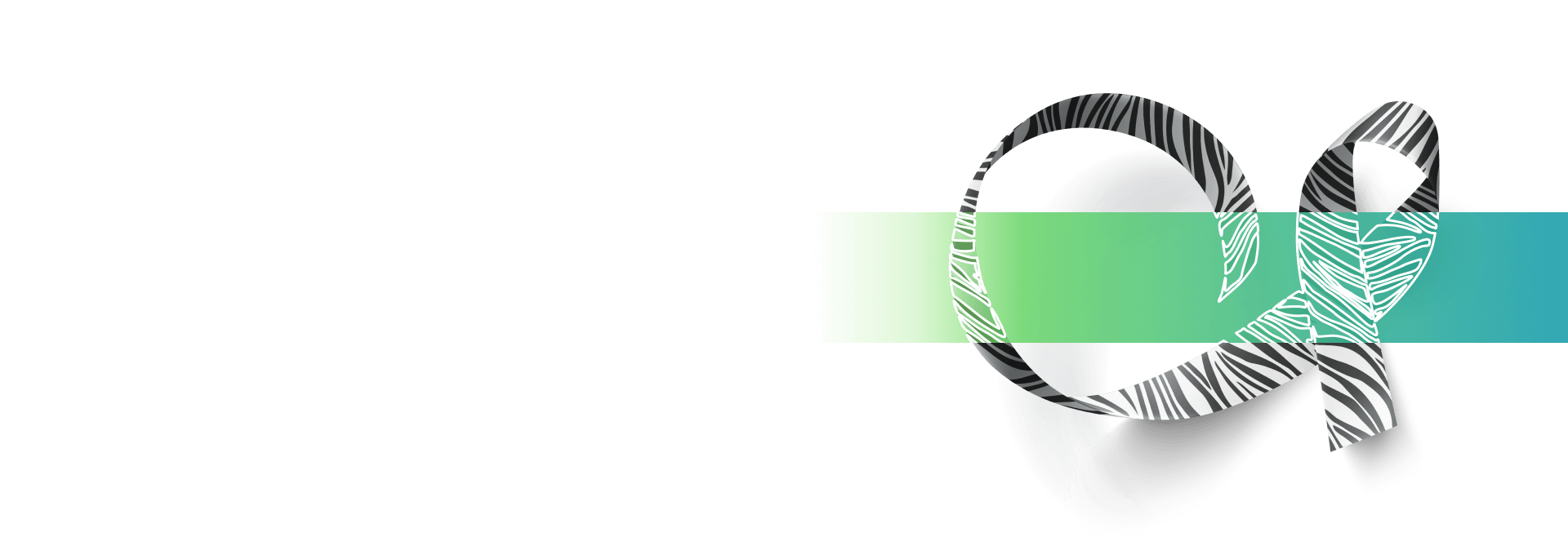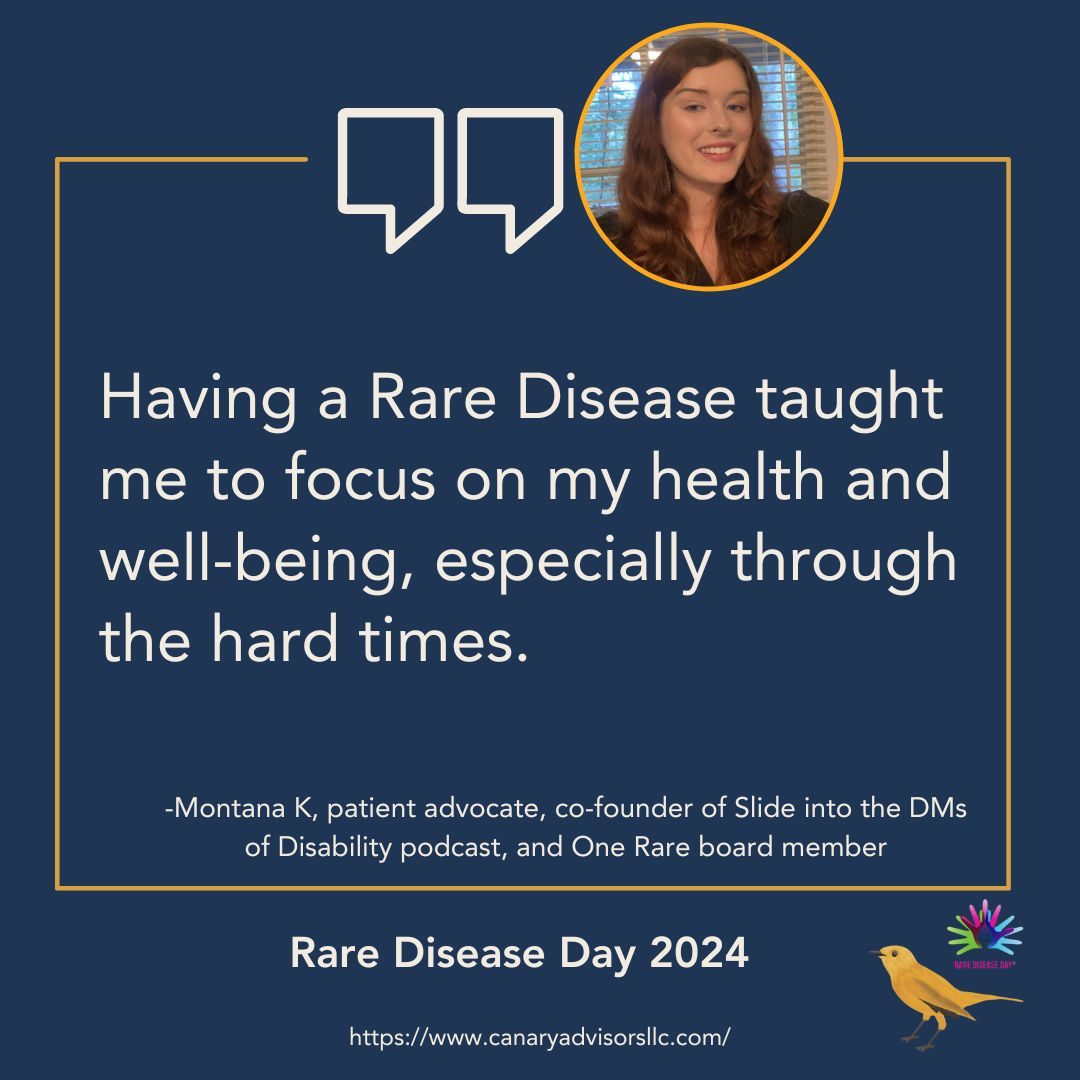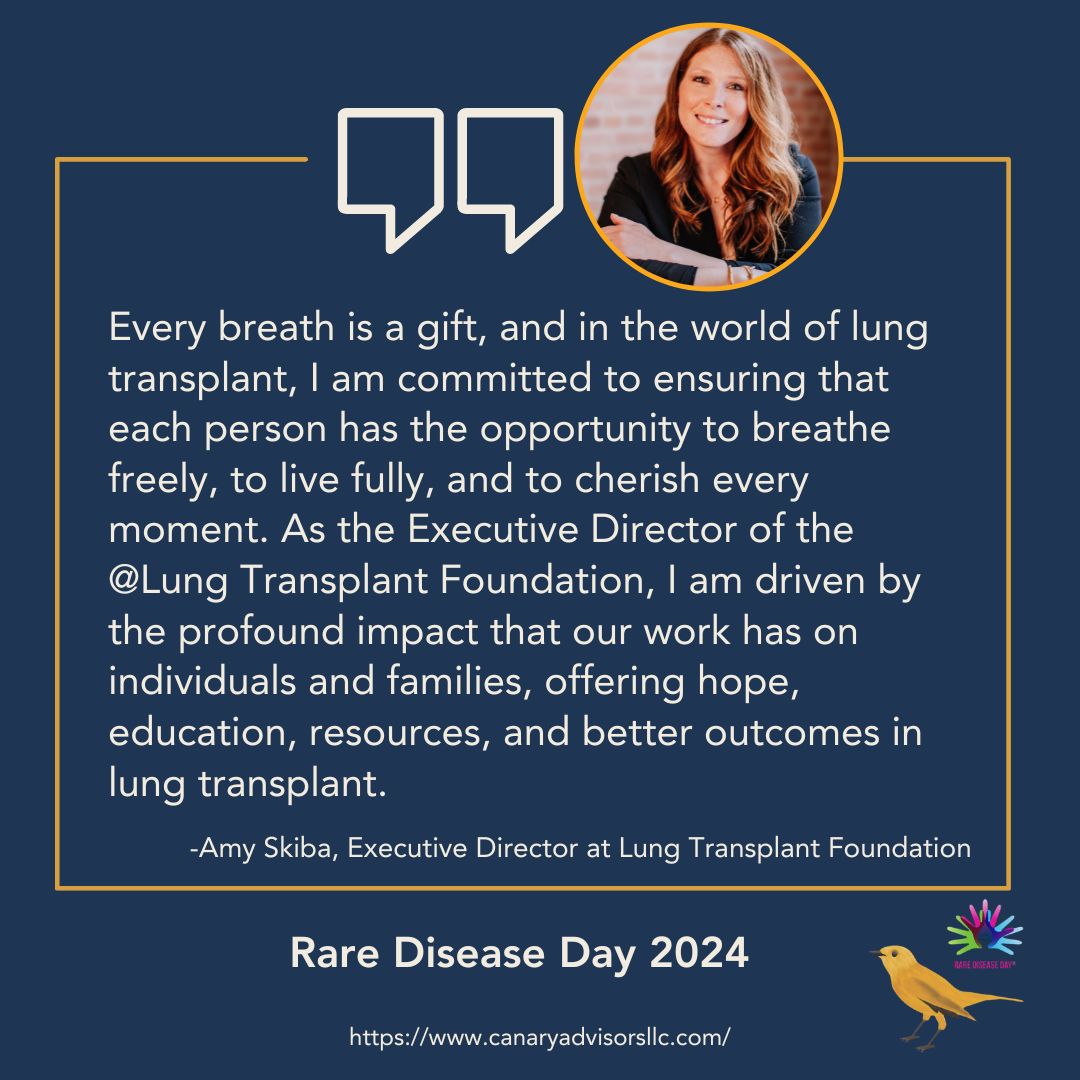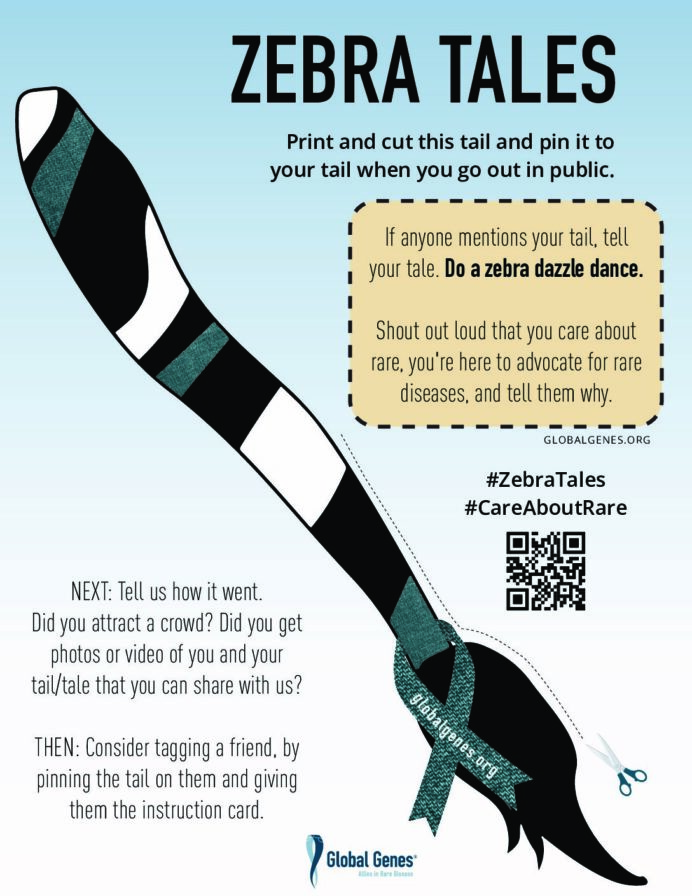The Rare Moments
You know those rare moments that give you goosebumps? The ones that provide a new perspective, connect two ideas in a way you’ve never considered before, or just really hit home?
For Rare Disease Day this February, you’ll find a curation of those moments here — The Rare Moments. Patients, families, researchers, and people working to advance rare disease treatments will be using this space to pass on their goosebump moments. From past moments, to the significant highlights of the 2024 Rare Disease Week and Rare Disease Day, and even hopes for the future, here you will find diverse and valuable insights that matter to our community and expand our reader’s understanding of what it means to live with and work with rare diseases.
Be sure to check back regularly throughout the month to catch the latest posts and submit your Rare Moment for consideration!
See what’s been sharedThat’s a wrap for now!
This feed is no longer active or accepting submissions, but we encourage you to check out the posts below which were submitted during February 2024 in support of Rare Disease Day.

We live for the rare moments.
Thank you for sharing and reading this curation from our rare disease community!

www.linkedin.com/posts/canaryadvisorsllc_raredc2024-rarediseaseday-activity-7166042878010462208-66EC?utm_source=share&utm_medium=member_desktopCanary Advisors® on LinkedIn: #raredc2024 #rarediseaseday
While there are only a few more days until Rare Disease Week officially kicks off and we pivot to posting live from DC, there's still time for a few more rareâ¦
www.linkedin.comThe Castleman Disease Collaborative Network (CDCN) is a global nonprofit organization dedicated to accelerating research and treatment for this rare and often deadly disease, supporting patients on their journeys, and revolutionizing biomedical research to cure countless other diseases. As we recognize Rare Disease Day on February 29, 2024, we are proud to share with you the story of one of the many thousands of Castleman disease patients who inspire our work every day. Learn more at cdcn.org.

www.linkedin.com/posts/canaryadvisorsllc_raredc2024-rarediseaseday-activity-7165679368831275008-NDiu?utm_source=share&utm_medium=member_desktopCanary Advisors® on LinkedIn: #raredc2024 #rarediseaseday
We first engaged with Amy Skiba, Executive Director of the Lung Transplant Foundation, to deliver on the organization's externally-led patient focused drugâ¦
www.linkedin.comHappening now through 25 Feb – VCP International Conference!! Check out the abstracts from the many researchers who are participating in this meeting. By bridging the gaps between various disciplines, from oncology to neurodegeneration, the Cure VCP conference will drive innovation and coordination in research, accelerating our progress to find a cure for valosin-containing protein (VCP) associate multisystem proteinopathy (MSP).
www.curevcp.org/posterabstractsThe Orphan Drug Act (ODA) of 1983 made the development of desperately needed new treatments for rare disease patient communities a possibility in ways it truly had not been before. Over the 40 years of the ODA, 6,340 orphan drug designations were granted, representing drug development for 1,079 rare diseases. Additionally, 882 of those designations resulted in at least one FDA approval for use in 392 rare diseases. While having an approved treatment option for 5% of rare disease communities is progress, we’ve seen time and again how partnering with patient communities increases efficiency. Let’s all do more of that!
Fall of 2015, I attended my first rare disease advocacy conference. It was Global Genes Patient Advocacy Summit. I was overwhelmed and amazed at how many people were advocating for rare diseases and how many different paths they took. Meeting Bo Bigelow there certainly shaped my path. Although we faced different diagnoses (USP7 for his daughter Tess and Menkes Syndrome for my son Lucas), we had so much in common. Eventually we co-founded The Disorder Channel to stream rare disease films on TV. We collaborated with Global Genes to screen some of these films. And three years ago, I joined the staff at Global Genes to lead an online support community, to encourage others to share their #ZebraTales, to teach them rare disease filmmaking, and to help plan that same conference that started it all for me.

globalgenes.org/world-rare-disease-day/I’ve worked in this industry approaching 25 years. When I first started, most clinical trials focused on treating disease symptoms so patients could feel better and live fuller lives. Today, though, we’re treating the underlying pathophysiology of diseases, and we’ve only just begun to do amazing science. I’m proud of the work our global teams are doing in Precision Medicine and Personalized Medicines, hopefully leading to a brighter future for rare disease patients everywhere.
This year for Rare Disease Day the Tatton Brown Rahman Syndrome (TBRS) Community is celebrating our many accomplishments from 2023! We are building on that momentum in 2024 with additional research into TBRS biomarkers and continuing to enroll samples into our TBRS biobank. Read more and celebrate with us here:
The International Autoimmune Encephalitis Society (IAES) is the only family/patient-centered organization for people with a diagnosis of Autoimmune Encephalitis. The services we provide are all-inclusive, from getting a diagnosis to recovery and the many challenges experienced on that journey. IAES provides science-based information backed by trusted medical experts in the field of autoimmune neurology and relies on the expertise of our Medical Advisory Board. We are an established non-profit organization with a history of supporting Autoimmune Encephalitis Warriors (patients, caregivers, and families) through their journey from diagnosis to recovery.
International Autoimmune Encephalitis Society
Our mission at Every Cure is personal.
This was David Fajgenbaum and I ten years ago at the NIH advocating for rare disease patients.
David was just months out of the hospital on a drug that wasn’t intended for his disease.
Fast-forward 10 years later, we launched Every Cure to offer repurposed treatments to patients who have otherwise run out of hope.
We’re incredibly encouraged by the progress we’ve achieved with limited resources, and we’re even more excited about the potential future impact as we integrate more data, optimize AI algorithms, and investigate our most promising leads.
We are taking on the responsibility of ensuring that every drug is used to treat every disease it possibly can.
It’s a huge responsibility but its desperately needed and we are well positioned to do it.
Go to EveryCure.org to learn more about how you can get involved!
EveryCure.org